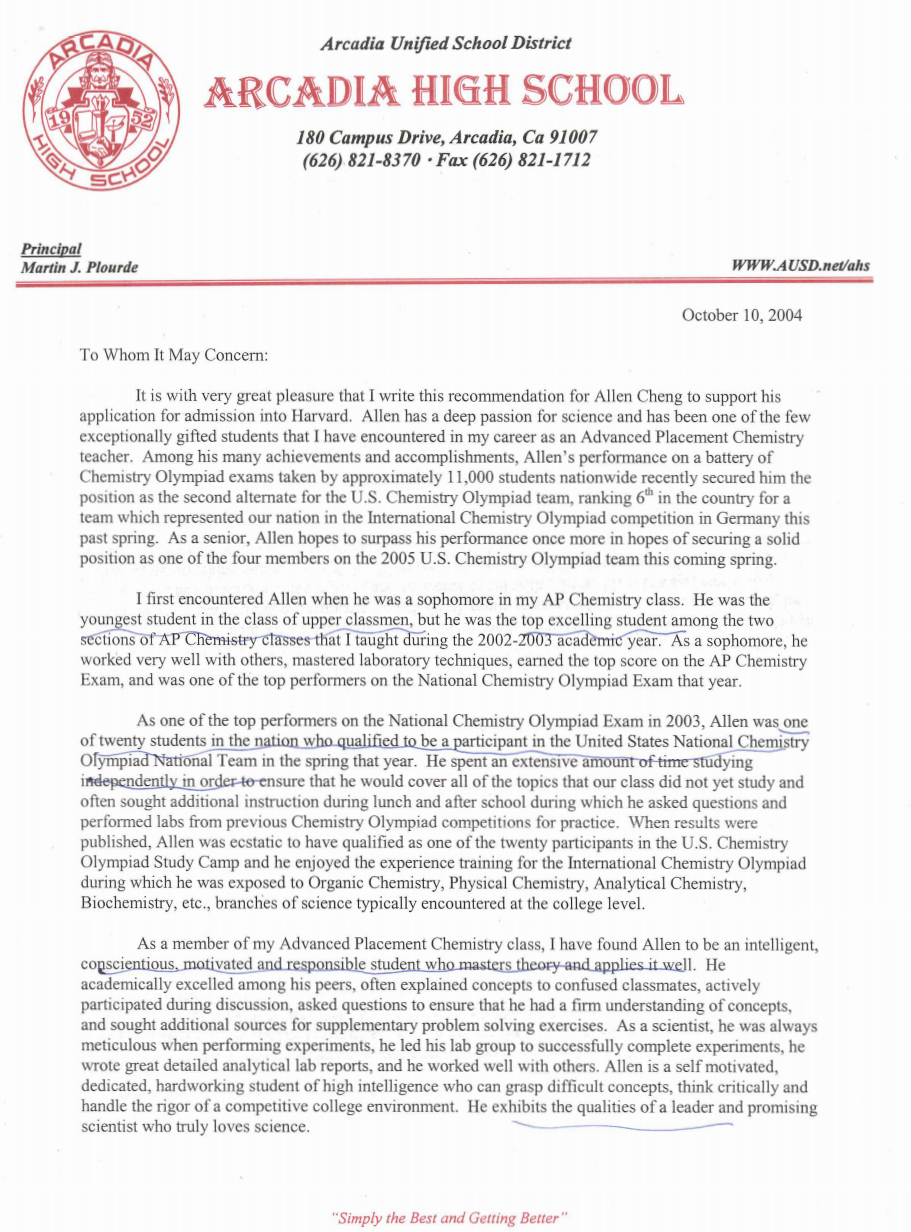Explorez les résultats de recherche web liés à ce domaine.
Mentoring relationships may involve sharing more personal information related to professional growth whereas in therapeutic relationships, the therapist is likely to have stricter boundaries of self-disclosure. Training programs for counselors do not assume that trainees come with the knowledge necessary to develop strong rapport with clients, however little guidance ...
Mentoring relationships may involve sharing more personal information related to professional growth whereas in therapeutic relationships, the therapist is likely to have stricter boundaries of self-disclosure. Training programs for counselors do not assume that trainees come with the knowledge necessary to develop strong rapport with clients, however little guidance is offered to mentors or mentees about the dos and don'ts of establishing a healthy mentoring relationship.A mentor is a coach who provides advice to enhance the mentee’s professional performance and development and a role model and support system for the mentee.The mentoring relationship is inherently flexible and can vary tremendously in its form and function. The mentoring relationship exists between one individual in need of developmental guidance and another individual who is both capable and willing to provide that guidance.Given the wide variety of mentoring relationships, they are broadly classified as formal or informal (Chao, Walz, & Gardner, 1992) according to the manner in which the relationship formed. Below are some of the possible needs of mentees, roles and characteristics of mentors, and settings for the relationship, which can be combined to create a wide variety of relationships. Guidance in a general or specific professional area


Mentorship is a powerful tool for personal and professional growth. Effective mentorship goes beyond merely providing advice; it involves employing strategic techniques to foster a supportive and constructive environment. In this article, we will explore various strategies that mentors can ...
Mentorship is a powerful tool for personal and professional growth. Effective mentorship goes beyond merely providing advice; it involves employing strategic techniques to foster a supportive and constructive environment. In this article, we will explore various strategies that mentors can use to guide their mentees towards success, encourage continuous learning, and build a trusting relationship.By employing techniques such as active listening, goal-setting, and providing constructive feedback, mentors can offer valuable guidance and support to their mentees. Encouraging growth and learning, sharing personal experiences, and fostering a trusting relationship are essential components of successful mentorship.Mentors should work with their mentees to establish SMART (Specific, Measurable, Achievable, Relevant, Time-bound) goals. This structured process ensures that both parties have a clear understanding of the objectives and can track progress effectively. Sharing personal experiences can provide valuable insights and lessons for mentees.Establishing meaningful relationships in mentoring goes far beyond a mere business agreement as it builds trust, respect, and a mutual dedication to personal and career development. Respect is a central component of a successful mentor and mentee relationship.

Discover essential strategies for mentoring students effectively. This foundational guide offers insights to enhance your mentoring relationships and student success.
A mentor has experienced similar struggles in their journey. They can use this experience to listen to the student and provide encouragement. · College or university student mentoring can be incredibly beneficial for students and staff when everyone practices the proper methods.Additionally, mentoring college students can benefit your instructors and faculty, but you should establish a program that works for everyone.Although both have professional experience, advisors and mentors use it differently to guide others. Advisors have a formal function and give others a sense of direction. Mentors perform a similar role but use personal experience, knowledge, and skills to lead others to success.Many people can be advisors, while only some can serve as mentors. An advisor directs others to perform tasks, but a mentor guides mentees through career and personal development. Mentors consider personal obligations, passions, and goals and encourage mentees to seek their own paths.
College is a transformative phase marked by personal growth and career preparation. However, navigating this period can be challenging without the right guidance and support. This is where having a mentorship in college becomes quite important. At Big Brothers Big Sisters of Long Island (BBBSLI), ...
College is a transformative phase marked by personal growth and career preparation. However, navigating this period can be challenging without the right guidance and support. This is where having a mentorship in college becomes quite important. At Big Brothers Big Sisters of Long Island (BBBSLI), we understand the profound impact mentorship can have on a student’s life.College is a time of significant personal development. Students learn to manage their time, handle stress, and develop effective communication skills. However, these changes can be overwhelming. BBBSLI mentors provide the emotional support and guidance students need to navigate these challenges.A strong professional network established during college can provide long-term career benefits. Every student’s journey is unique, and personalized support is crucial. BBBSLI mentors offer tailored guidance and encouragement, helping students stay motivated and focused on their goals.Whether a student needs academic advice, career insights, or personal encouragement, our mentors can help. Consistency is key to a successful mentoring relationship. BBBSLI facilitates regular meetings between mentors and mentees, ensuring ongoing support and guidance. These meetings provide a platform for students to discuss their challenges, set goals, and celebrate achievements. Our mentors are always available to offer advice, feedback, and encouragement. In college, mentoring can be a very effective tool for career and personal growth.


College is a transformative phase marked by personal growth and career preparation. However, navigating this period can be challenging without the right guidance and support. This is where having a mentorship in college becomes quite important. At Big Brothers Big Sisters of Long Island (BBBSLI), ...
College is a transformative phase marked by personal growth and career preparation. However, navigating this period can be challenging without the right guidance and support. This is where having a mentorship in college becomes quite important. At Big Brothers Big Sisters of Long Island (BBBSLI), we understand the profound impact mentorship can have on a student’s life.College is a time of significant personal development. Students learn to manage their time, handle stress, and develop effective communication skills. However, these changes can be overwhelming. BBBSLI mentors provide the emotional support and guidance students need to navigate these challenges.A strong professional network established during college can provide long-term career benefits. Every student’s journey is unique, and personalized support is crucial. BBBSLI mentors offer tailored guidance and encouragement, helping students stay motivated and focused on their goals.Whether a student needs academic advice, career insights, or personal encouragement, our mentors can help. Consistency is key to a successful mentoring relationship. BBBSLI facilitates regular meetings between mentors and mentees, ensuring ongoing support and guidance. These meetings provide a platform for students to discuss their challenges, set goals, and celebrate achievements. Our mentors are always available to offer advice, feedback, and encouragement. In college, mentoring can be a very effective tool for career and personal growth.
Each person involved in the program ... students who want to get accustomed to the culture of being in college. From helping to manage your time, relieve stress, offer support, and provide guidance......
Each person involved in the program benefits by learning from one another and expanding their network. Mentorship programs are especially useful for new college students who want to get accustomed to the culture of being in college. From helping to manage your time, relieve stress, offer support, and provide guidance, these programs can help you succeed in both college and careers.Mentoring is a guidance system where one person (the mentor) imparts their knowledge, skills, and experiences with another person (the mentee or student). The goal of mentorship is to help mentees learn skills and information that will help lead them to success in their careers.College mentoring programs help students accomplish their academic and career goals. It takes important considerations to design a successful college mentorship program.Home > Blog > Tips for Online Students > Higher Education News > What Makes a College Mentoring Program Successful? ... There are so many different ways to learn. One of the most personal and relationship-building learning experiences comes from mentorship. College mentoring programs are designed to pair students with professional mentors or fellow students so that they can assist in a student’s growth.

Social support: Mentors may help ... support: Mentors may offer guidance on personal issues, such as managing stress, dealing with family or relationship problems, and finding resources for mental health support....
Career guidance: Mentors may provide information about career paths, internships, and job opportunities. Social support: Mentors may help students feel connected to their college community and provide advice on navigating social situations and building relationships. Personal support: Mentors may offer guidance on personal issues, such as managing stress, dealing with family or relationship problems, and finding resources for mental health support.College mentoring programs connect incoming students with experienced mentors who offer guidance, advice, and support. Current college students often hold mentor positions; however, mentors can also be faculty members, alumni, administrators, or staff.Aspire is a mentoring program connecting alumni with juniors beginning their professional journey. · E.P.I.C. (Establish relationships, Promote possibilities, Impact direction, and Confirm next steps) is a community where first-year St. John’s students learn from the guidance and wisdom of sophomores, juniors, or seniors who have successfully navigated their first year in college.The first year of college can be both exciting and challenging. It can take time to adjust to the new environment, meet new people, and navigate academic expectations; that’s where mentor programs come in. Having a mentor can significantly impact your experience and provide plenty of long-term benefits beyond your college years.

The following essay by Ikeda Sensei was originally published in the May 23, 2000, issue of the Soka Gakkai’s daily newspaper, Seikyo Shimbun. I have written in the past about my daily morning classes at “Toda University,” during which my mentor, Josei Toda, instructed me on a wide variety ...
The following essay by Ikeda Sensei was originally published in the May 23, 2000, issue of the Soka Gakkai’s daily newspaper, Seikyo Shimbun. I have written in the past about my daily morning classes at “Toda University,” during which my mentor, Josei Toda, instructed me on a wide variety of subjects.I have written in the past about my daily morning classes at “Toda University,” during which my mentor, Josei Toda, instructed me on a wide variety of subjects. Many other people also came to Mr. Toda every day to receive guidance and advice. Even if he was in the middle of work, he would meet with them in a private room and spend time with them.Toda would give guidance using concrete, easy-to-understand examples; sometimes he gave rousing encouragement; and sometimes he just presented his conclusions in a simple, concise manner. Sometimes he shared different anecdotes, smiling and conversing in a warm and friendly way that soothed the listener’s heart. Sometimes he could be as fiercely angry as a strict but loving father, pointing out the person’s laziness, weakness and arrogance to correct those faults.One day when giving guidance to a person who couldn’t get along with his siblings, Mr.
Good mentoring is discipline-agnostic. Whether you’re a mentor to a medical resident or marketing manager, the same six guideines apply: 1) Choose mentees carefully: Although the prospect of having an energetic and personable junior partner for a multitude of projects is appealing, the wrong ...
Good mentoring is discipline-agnostic. Whether you’re a mentor to a medical resident or marketing manager, the same six guideines apply: 1) Choose mentees carefully: Although the prospect of having an energetic and personable junior partner for a multitude of projects is appealing, the wrong mentee can be painful.Establishing firm and clear ground rules with mentees can improve efficiency. 4) Head off rifts or resolve them. Mentor-mentee rifts are common in both business and academia, and they often aren’t dealt with as quickly as they should be. 5) Don’t commit mentorship malpractice.As academic physicians, we do a lot of mentoring. Over the course of our careers, and through our formal research on mentoring within and outside of academia, we’ve found that good mentoring is discipline-agnostic. Whether you’re a mentor to a medical resident or marketing manager, the same principles apply.The best mentorships are more like the relationship between a parent and adult child than between a boss and employee. They’re characterized by mutual respect, trust, shared values, and good communication, and they find their apotheosis in the mentee’s transition to mentor.


Mentoring can provide a mentee with new development opportunities by offering guidance and support in areas such as skill development, career advancement, and personal growth. A mentor can share their knowledge, experience, and insights, and provide feedback and advice on the mentee’s performance.
Mentoring is like having a personal confidence coach, helping you build the self-assurance you need to achieve your goals. Your mentor will be there to provide you with support, guidance and honest feedback. Together, you’ll identify your strengths and areas for improvement, set goals, and figure out how to achieve them.Who is the best person to tell you about how to become a VP of Sales? Probably that VP of Sales. Mentoring differs from other forms of advice in terms of relevance because it is tailored to the specific needs and goals of the mentee. By pairing a mentor with a similar career trajectory or set of interests, they can work closely to best understand their unique situation and provide advice and guidance based on that understanding.Having a mentor can help you make major strides in your personal progress. By providing guidance, support, and feedback on your personal goals and development they can help you identify your strengths and areas for improvement, set goals, and develop the skills you need to achieve them.Mentoring can be a powerful ego boost for mentors. It’s a tangible reminder that their expertise, knowledge, and insights are not only valued but sought after by others. Nothing quite says “I’m valuable” more than someone leaning on your advice and guidance for their personal and professional development.
For many new college students, ... first person in your family to go to college. It can be scary. It’s a big change. Peer mentoring helps students connect with other students like them who can help them feel more at home while in college. This can be done through support, guidance and encouraging ...
For many new college students, transitioning to university life is daunting, especially if you might be the first person in your family to go to college. It can be scary. It’s a big change. Peer mentoring helps students connect with other students like them who can help them feel more at home while in college. This can be done through support, guidance and encouraging them to participate in activities or connect with other students at the school.College students can get overwhelmed with academic and career ambitions. Find out how mentoring can help keep students inspired and focused.Different mentoring programs open up these networking opportunities even more, whether it be introducing students to more college faculty or people that already work in their chosen industry. Harvard University has done just that with their Longwood Campus Mentoring Program. The program “provides a unique and inclusive learning environment by connecting mentees and mentors of diverse backgrounds and experiences, which facilitates cross-cultural and cross-functional learning opportunities.” Building up personal relationships and learning how to communicate with professionals is an important skill that colleges should help students build.A mentor has gone through every stage of the hiring process and career chain, so they have insight and advice for specific situations that can greatly benefit a student. One part of college that’s often new for students is the balance of new responsibilities. There are academic responsibilities, of course, but also social and personal—and sometimes professional.


Over half of students believe their professors are at least somewhat responsible for being a mentor to them. Faculty weigh in on the feasibility of this effort. A May 2024 Student Voice survey by Inside Higher Ed and Generation Lab found over half (55 percent) of students believe their professors ...
Over half of students believe their professors are at least somewhat responsible for being a mentor to them. Faculty weigh in on the feasibility of this effort. A May 2024 Student Voice survey by Inside Higher Ed and Generation Lab found over half (55 percent) of students believe their professors are at least partly responsible for being a mentor.“It’s an understandable, logical, desirable ambition,” says Jason Hendrickson, professor of English at LaGuardia Community College, part of the City University of New York system, and a CUNY Career Success Leadership Fellow. “I think students deserve that and it’s something that I, personally … believe should be faculty members’ responsibility.” · Mentoring is not a new expectation for faculty members, says Emily J.Making the match: Isaacs considers the role of professional or faculty advising as one way that institutions have standardized faculty mentoring. By providing students with a professional adviser who can focus more on the technical elements of degree mapping or transfer of credit, faculty have more opportunities to provide personalized support and coaching in their discipline.Survey says: Students at private nonprofit institutions were more likely to indicate they believe professors should be career-related mentors (67 percent) compared to their public institution peers (53 percent) and those at two-year colleges (49 percent).

Use this template to craft your thank-you note for your mentor:Dear [mentor's name]First paragraph: [Begin with an opening sentence explaining why you are writing this letter. This paragraph summarises for the mentor how you have changed as a person because of their guidance and influence.
Learn how to write a thank-you message for a mentor, find the best method to send these messages and take inspiration from a template and a helpful sample.Try to mention all significant tangible and intangible things your mentor has done for you in your message. This way, you can make your message more precise and substantial, which can help your mentor recall them, too.Example: Dear Ms Tara, thank you for your constant guidance and mentorship throughout my project building process.Read this sample thank-you message to guide your writing process when drafting a gratitude letter for your mentor:Dear Ms Lara,I am writing to tell you how grateful I am for your mentorship over the past two years. Learning from you has greatly enhanced my capabilities and skill set and has brought about a substantial change in my career. When we first started working together, I never imagined that I could make as much progress as I have made now. I have now moved up to a management position in the company, and that has been only possible because of your constant guidance and mentorship.Your training in team management has given me a fresh perspective on how to improve company operations, along with accepting feedback.It is not necessary to buy them expensive gifts to say thanks, but if you are genuinely happy and appreciative of all they have done for you, offering assistance as a tangible gift can be a good idea. Helping your mentor with anything that can benefit them is excellent for expressing your thankfulness.Example: Dear Smiti, I am extremely thankful to you for all your mentoring sessions and guidance.

Peer mentorship is a supportive relationship where students at similar stages in their academic journey help each other out, sharing tips and encouragement.
Peer mentorship helps you build a strong support network on campus. You’ll make new friends and connections, creating a sense of community. These relationships can last beyond college and help you in your future career. ... Both mentors and mentees grow personally and professionally through peer mentorship.Peer mentorship is a supportive relationship where students at similar stages in their academic journey help each other out. It’s different from traditional mentoring, where an experienced person guides a less experienced one.This mutual growth is beneficial for your future job prospects and personal fulfillment. ... A peer mentor can be a great motivator. They can help you set goals and stay on track to achieve them. Knowing that someone is there to support you and hold you accountable can keep you focused and motivated. ... Peer mentorship is more adaptable and flexible than traditional mentoring.Being part of a peer mentorship program helps you develop better communication skills. Mentors learn to explain concepts clearly, while mentees practice active listening and asking good questions. These skills are not only useful in college but also in your future career.
In order to do so, the College understands the importance of providing a holistic experience, which entails offering tools and resources geared towards personal and academic success. · The Peer Mentoring and Leadership (PML) program provides students with guidance for them to successfully ...
In order to do so, the College understands the importance of providing a holistic experience, which entails offering tools and resources geared towards personal and academic success. · The Peer Mentoring and Leadership (PML) program provides students with guidance for them to successfully navigate the College’s resources on the journey to achieving their academic goals.Additionally, leaders are paired with a faculty mentor in their pathway to assist them with their personal goals. · Peer leaders have access to a support system of College staff in departments, including advising, financial aid, and registration, among others who assist them in their job.Providing high-quality education is Broward College’s mission. In order to do so, the College understands the importance of providing a holistic experience, which entails offering tools and resources geared towards personal and academic success.Mentoring Coordinator, Marta Bautista is aware that peer leaders are also in need of their support system now more than ever. “If we want our peer leaders to serve their mentees successfully, we must offer strong support. We are providing them with as many resources as we can to make sure they take care of themselves first. We are facilitating material on mental health, time management, E-learning, for their personal use and to share with their students,” she says.

College mentors can offer professional advice and guidance as well as personal support.
Research from the College of Charleston found that for first-year Black students, the mentoring relationship can provide academic, social, and career guidance that is invaluable during the undergraduate years.A college mentor can support students in their academic and professional pursuits. Learn what a good mentor looks like and how to find one.The 2018 Gallup Alumni Survey found that college graduates are almost two times more likely to be engaged at work if they had a mentor who encouraged them to pursue their goals and dreams. The study also revealed that college graduates with faculty members who cared about them as a person tend to benefit from higher levels of well-being.They’re Invested in You: Building a solid relationship takes time and effort. Finding a mentor committed to this process is key for college students. They’re Respectful: A good mentor is kind and admires you as a whole person who may be different in small or large ways.


Discover the ultimate mentoring program guide for corporates to structure and implement high-impact mentoring programs effectively. Read on to know more.
For example, one-on-one mentoring may involve face-to-face meetings, while group mentoring may include virtual sessions. During these meetings, the mentees learn from their mentors' expertise and receive guidance on career trajectory and talent development, problem-solving, and decision-making.Effective communication also helps to develop a sense of trust and rapport between the mentor and mentee. This is essential for establishing a strong professional network, which can be a significant factor in determining the mentee's future success. Without trust and rapport, it can be challenging for the mentee to feel comfortable seeking guidance and advice about career plans from their mentor.A strong commitment from both parties ensures that they are fully engaged in the program with full attendance at chapter meetings, taking full advantage of the opportunities presented and working towards achieving their objectives. A committed mentor provides support, guidance, and feedback to the mentee, while a committed mentee is receptive to feedback and willing to put in the necessary effort to improve.Likewise, the mentor may find it challenging to provide guidance without a solid understanding of the individual mentee's needs and career exploration aspirations.
Mentors assist in setting realistic ... admissions journey. It encompasses a spectrum of guidance – from academic advice and application support to bolstering personal development and fostering confidence....
Mentors assist in setting realistic and attainable goals for academic and personal growth, tracking students' progress, offering constructive feedback, and ensuring unwavering motivation throughout the college admissions journey. In conclusion, mentorship is an invaluable compass for students embarking on their college admissions journey. It encompasses a spectrum of guidance – from academic advice and application support to bolstering personal development and fostering confidence.These mentors provide: Personalized guidance and support.A personal mentor, for instance, can support an individual looking to advance their work-life balance by offering time management and stress reduction techniques. This then improves the sense of fulfillment and personal development. The guidance offered by mentors extends beyond professional aspirations, focusing on the holistic betterment of the mentee, making them an invaluable resource for nurturing a balanced and satisfying life.#1. Academic Guidance: Mentors assist students in selecting suitable courses, majors, and extracurricular activities that align with their aspirations, fortifying their college applications. #2. Personal Support: Navigating the labyrinthine landscape of college admissions can be stressful.

But there are a few general principles ... career success. certain personality traits are preferred: integrity, leadership, curiosity, creativity, empathy, perseverance, motivation, ambition, collaboration, confidence, and others....
Even more, you'll likely have a lot more fun in school, and you'll build a strong relationship with an adult mentor who can teach you a lot. For a lot more detailed advice like this on how to interact with teachers earnestly, check out my How to Get a 4.0 GPA and Better Grades guide. Do you like my advice in this guide? Great—I've written a lot more to help you build the strongest college app possible.When I applied to college, I was accepted into every school I applied to, including Harvard, Princeton, Stanford, MIT, the Ivy League, UC Berkeley, UCLA, and more. While I had a strong overall application, the two teacher letters of recommendation were critical in getting me admitted. Why? Both teachers said I was one of the top students they had ever taught. Both enthusiastically advocated for my personality, leadership skills, and energy.But there are a few general principles that hold true for most colleges: previous academic success is a great predictor of future academic success, which in turn predicts career success. certain personality traits are preferred: integrity, leadership, curiosity, creativity, empathy, perseverance, motivation, ambition, collaboration, confidence, and others.If you took a rigorous courseload and got a high GPA, and you got a high SAT/ACT score, you have shown that you can handle high school academics. This means you're in a great position to succeed academically in college. How do you show the second requirement—personality traits?


Avoid digging too deeply into a mentor's personal life. Adjusting to college life can be challenging as students navigate living alone for the first time. However, mentors – who can be faculty, staff members, peers or alumni – can provide advice and guidance about campus life, academic ...
Avoid digging too deeply into a mentor's personal life. Adjusting to college life can be challenging as students navigate living alone for the first time. However, mentors – who can be faculty, staff members, peers or alumni – can provide advice and guidance about campus life, academic tracks and career paths.Students should build a network of mentors in college, which could consist of faculty, staff members, peers and alumni.If you have good self-awareness, then you bring that into every job interview, every professional setting and in your personal life. And to build self-awareness, you need good feedback." READ: Campus Support Every First-Year College Student Should Use. Chiu, who is also the faculty recipient of the 2023 Chancellor’s Award for Excellence in Mentoring Undergraduate Research at UC Davis, suggests building a network of multiple mentors, as each has a different role to play.Faculty mentors can share more about how to navigate life, while peer mentors provide advice on how to maneuver college life, says Richmond Hill, provost of the Northern Virginia Community College Woodbridge Campus. For instance, students can ask their peer mentors about the best places to study on campus, where to buy inexpensive textbooks or how roommate selection works. "A peer mentor is kind of more walking alongside of you through the journey versus a faculty mentor or alumni mentor who's going to be outside of higher education, their own personal journey at that point, looking at it from a different dimension," says Missy Gutkowski, assistant dean for experiential learning at Bucknell University's Freeman College of Management in Pennsylvania.










